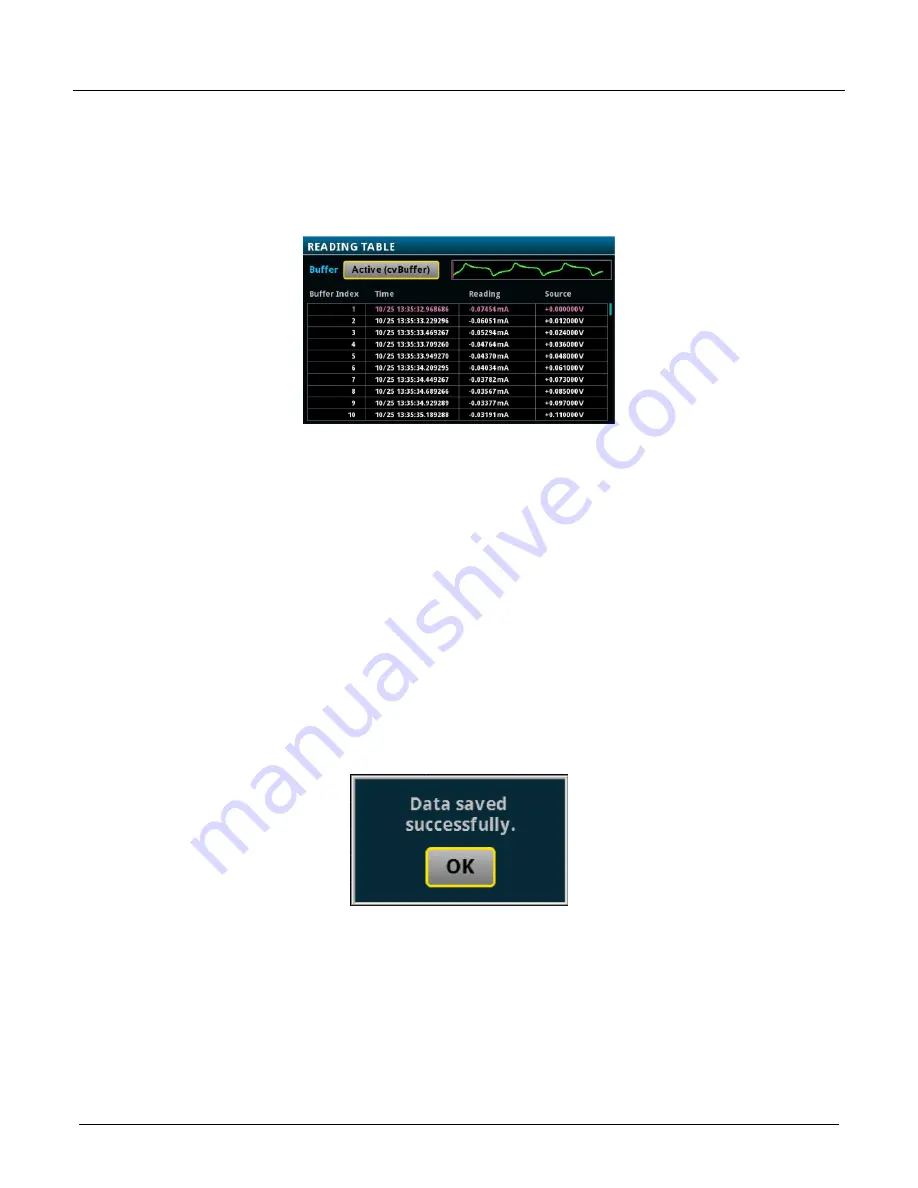
SMU Potentiostats and EC-UPGRADE Kit Quick Start Guide
071347302 / March 2020
21
View the test reading table
You can view the individual data points by selecting
Reading Table
from the Menu screen. See the next figure.
Figure 33: Viewing the Reading Table
Save the test data to the flash drive
You can save the data generated from the test to the front-panel flash drive. The data is stored in a
.csv
file
that also includes instrument information and parameter settings.
If there are more than 10,000 measurements stored, the process of saving the data may take several minutes.
To save the test data to the flash drive:
1. Make sure your flash drive is inserted into the front-panel USB port.
2. From the test application home screen, select
Save Data
.
3. Specify a file name, then select
OK
.
4. Select
OK
on the confirmation message.
Figure 34: Test results saved successfully
View the results saved to the flash drive
To view the test results, open the saved file in a spreadsheet program on a computer. Current, voltage, time,
and general parameters for the test are included in the file.


















